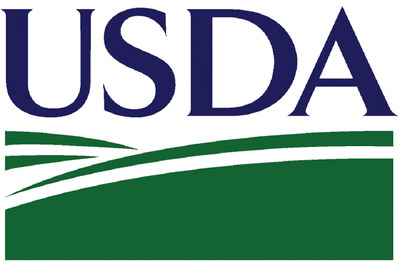News from April 2023
Agriculture Department discusses Submission for OMB Review; Comment Request on April 18
By USDA Newswire | Apr 19, 2023
The US Agriculture Department published a two page notice on April 18, according to the U.S. Government Publishing Office.
Opening Statement: "A Review of USDA Animal Disease Prevention and Response Efforts"
By USDA Newswire | Apr 19, 2023
Release: “It is an honor to chair this first hearing of the House Agriculture Committee’s Subcommittee on Livestock, Dairy, and Poultry in the 118th Congress. As a fifth generation Kansan having grown up on my family farm, I rode pens and doctored thousands of sick cattle at our preconditioning feedlot. I understand the grit, tenacity, and courage that it takes to make a living in agriculture, and the burden of responsibility for feeding the world that comes along with it.
Submission for OMB Review; Comment Request discussed on April 18 by Agriculture Department
By USDA Newswire | Apr 19, 2023
The US Agriculture Department published a one page notice on April 18, according to the U.S. Government Publishing Office.
Agriculture Department discusses Supplemental Nutrition Assistance Program: Non-Discretionary Quality Control Provisions of Title IV of the Agricultural Improvement Act of 2018 on April 18
By USDA Newswire | Apr 19, 2023
The US Agriculture Department published a one page rule on April 18, according to the U.S. Government Publishing Office.
USDA-AMS grant application closes on July 19
By USDA Newswire | Apr 19, 2023
Indigenous Animals Harvesting and Meat Processing Grant Program grant opened on April 19.
Three Days in Michigan
By USDA Newswire Report | Apr 19, 2023
By Stacy Dean, Deputy Under Secretary for Food, Nutrition, and Consumer Services
Food Help on the Way for Arkansas Households Hit by Tornadoes and Severe Storms
By USDA Newswire Report | Apr 19, 2023
Approximately 7,000 families in Cross and Pulaski County affected by recent tornadoes and severe storms will soon be able to receive food packages containing nutritious, high-quality foods that are 100% grown and produced on farms in the U.S. – known as USDA Foods.
USDA Announces Approval of D-SNAP for California Disaster Areas
By USDA Newswire Report | Apr 19, 2023
The U.S. Department of Agriculture (USDA) announced that low-income California residents in seven counties (Kern, Mariposa, Monterey, San Benito, Santa Cruz, Tulare, and Tuolumne) recovering from the impact of severe storms, flooding, landslides, and mudslides that began on Feb. 21, 2023, could be eligible for a helping hand from the USDA’s Disaster Supplemental Nutrition Assistance Program (D-SNAP).
Engaging Community Volunteers Helps Reduce Food Insecurity in Montana
By USDA Newswire Report | Apr 19, 2023
Growing Together Montana provided mini-grants of up to $2,000 to Master Gardeners and communities to start, convert or maintain gardens for the purpose of donating fruits and vegetables to food pantries or other organizations.
USDA Announces Approval of D-SNAP for Mississippi Disaster Areas
By USDA Newswire Report | Apr 19, 2023
The U.S. Department of Agriculture (USDA) announced that low-income Mississippi residents in six counties (Carroll, Humphreys, Monroe, Montgomery, Panola, and Sharkey) due to the impact of severe storms, straight-line winds, and tornadoes that began on March 24, 2023, could be eligible for a helping hand from the USDA’s Disaster Supplemental Nutrition Assistance Program (D-SNAP).
USDA Continues to Modernize, Innovate WIC Program to Improve Maternal, Child Health
By USDA Newswire Report | Apr 19, 2023
The Department of Agriculture’s Food and Nutrition Service is announcing a series of grant opportunities funded by the American Rescue Plan Act of 2021 aimed at innovating and modernizing the Special Supplemental Nutrition Program for Women, Infants, and Children, known as WIC.
USDA Continues to Modernize, Innovate WIC Program to Improve Maternal, Child Health
By Alyssa Marie Dasal | Apr 19, 2023
The Department of Agriculture’s Food and Nutrition Service is announcing a series of grant opportunities funded by the American Rescue Plan Act of 2021 aimed at innovating and modernizing the Special Supplemental Nutrition Program for Women, Infants, and Children, known as WIC.
USDA to Host National Consultations on Tribal Barriers the Week of April 24
By Alyssa Marie Dasal | Apr 20, 2023
The U.S. Department of Agriculture (USDA) will hold a five-day consultation series, “USDA Tribal Consultations on Barriers/Equity:
USDA-ARS Names Two Scientists to Hall of Fame
By USDA Newswire Report | Apr 20, 2023
The Agricultural Research Service (ARS) will induct two scientists into its Science Hall of Fame for scientific achievements in developing innovative biobased products and leveraging genomic tools to improve livestock health and productivity.
USDA Researchers Develop Natural, Washable Antimicrobial Cleaning Wipes
By USDA Newswire Report | Apr 20, 2023
Most antimicrobial wipes, which are predominantly made of synthetic fibers like polyester and polypropylene, are discarded after a single use and end up in landfills where they can stay for hundreds of years and become a source of environmental microplastic fiber pollution.
U.S. Trade Performance and Position in Global Meat, Poultry, and Dairy Exports
By USDA Newswire Report | Apr 20, 2023
The emergence of new animal product suppliers, trade agreements and barriers, changes in consumer preferences, and growth in consumption in developing markets influence the global trade performance of U.S. agricultural commodities.
Trends in U.S. Whole-Grain Intakes 1994–2018: The Roles of Age, Food Source, and School Food
By USDA Newswire Report | Apr 20, 2023
Since 2005, the Dietary Guidelines for Americans (DGA) guide has recommended that whole grains comprise at least half of total grain consumption.
USDA Researchers Develop Natural, Washable Antimicrobial Cleaning Wipes
By USDA Newswire Report | Apr 20, 2023
Most antimicrobial wipes, which are predominantly made of synthetic fibers like polyester and polypropylene, are discarded after a single use and end up in landfills where they can stay for hundreds of years and become a source of environmental microplastic fiber pollution.
Irrigation Organizations: Groundwater Management
By USDA Newswire Report | Apr 20, 2023
This report is the third of a series of economic briefs on key topics related to irrigation organizations using data collected in the U.S. Department of Agriculture’s 2019 Survey of Irrigation Organizations (SIO).
Coastal Georgia Grower Organizes to Resolve Food Deserts
By USDA Newswire Report | Apr 20, 2023
Oh, we ate good off that bale,” said the late Lassie B. Thomas, Brantley’s fourth-oldest daughter.
















